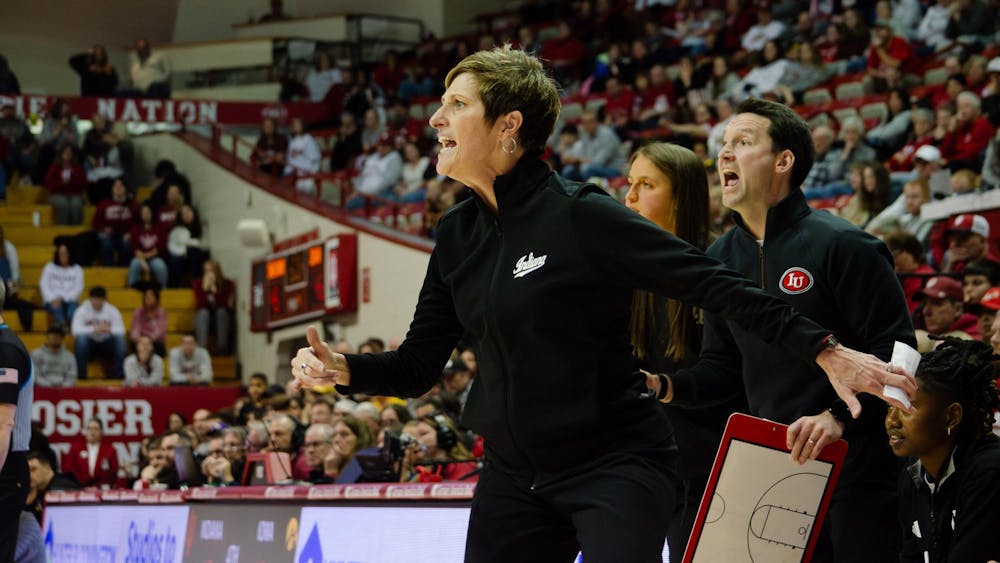Several weeks remain before the Super Bowl’s kick-off, and as game-day approaches, the City of Indianapolis is preparing for the influx of football fans.
But state lawmakers are preparing for the arrival of a different crowd: human traffickers.
“We believe the Super Bowl to be the biggest human trafficking event in the country, if not the world,” Sen. Randy Head, R-Logansport, said.
Senate Bill 4, which Head first proposed Jan. 4, is intended to tighten Indiana’s laws against human trafficking, specifically combating human traffickers expected to transport teenage prostitutes to Indianapolis for the Super Bowl on Feb. 5 at Lucas Oil Stadium.
Human trafficking includes the recruiting, harboring or selling of a person, especially a child, for purposes of prostitution, commercial sex acts, forced labor or involuntary servitude.
“There are enormous economic benefits of hosting large sporting events such as the Super Bowl,” Indiana Attorney General Greg Zoeller said.
“But the disturbing reality is that such gatherings in other states have drawn criminal rings that traffic young women and children into the commercial sex trade.”
According to the bill, the changes would increase the penalty for people arranging for sex with a minor to a Class A felony. This would apply even if the minor consents to the acts and no money is involved.
Currently, Indiana law only prohibits forced marriage and prostitution.
Adults arranging prostitution using a minor that is not their child could currently be prosecuted for a Class B felony, “promotion of human trafficking.” However, this legislation changes these acts into a Class A felony, “sexual trafficking of a minor.”
A Class B felony garners a prison sentence of six to 20 years. A Class A felony, however, carries a 20-to-50-year sentence.
On Tuesday, the bill passed through the senate unanimously on its third reading and passed into the House. Head’s goal is for the bill to reach the governor’s desk and be enacted into law prior to the week of Super Bowl XLVI. This objective, Head said, should be attainable.
“I think people are understanding the size of the problem,” Head said. “It’s not just the Super Bowl. It’s going on nationally in a scope that I don’t think anyone was really aware of. This is something that we didn’t count on when we picked up the Super Bowl.”
Head said the bill was a recommendation by Zoeller after communicating with lawmakers in Florida and Texas.
Head said both states encountered increased human trafficking cases when they hosted the Super Bowl in 2010 and 2011, respectively.
Accurate estimates of the number of prostitutes present during the last two Super Bowls do not exist, Head said. However, a task force led by the Texas Attorney General’s office reported 133 prostitution-related arrests during last year’s Super Bowl.
Lawmakers are also unable to estimate how many prostitutes and human traffickers will arrive in Indianapolis in a few weeks, Head said.
According to the U.S. State Department’s 2010 Trafficking in Persons Report, approximately 12.3 million adults and children are trafficked across international borders into forced labor and sexual exploitation worldwide.
Sen. Doug Eckerty, R-Muncie, said he also hopes the legislation passes before sports fans and athletes occupy Lucas Oil Stadium.
“We need this law in place to prosecute human trafficking offenders promptly and send a message that such activity won’t be tolerated in our state,” Eckerty said.
Human trafficking becomes concern for Indianapolis
Super Bowl prompts legislative action
Get stories like this in your inbox
Subscribe





